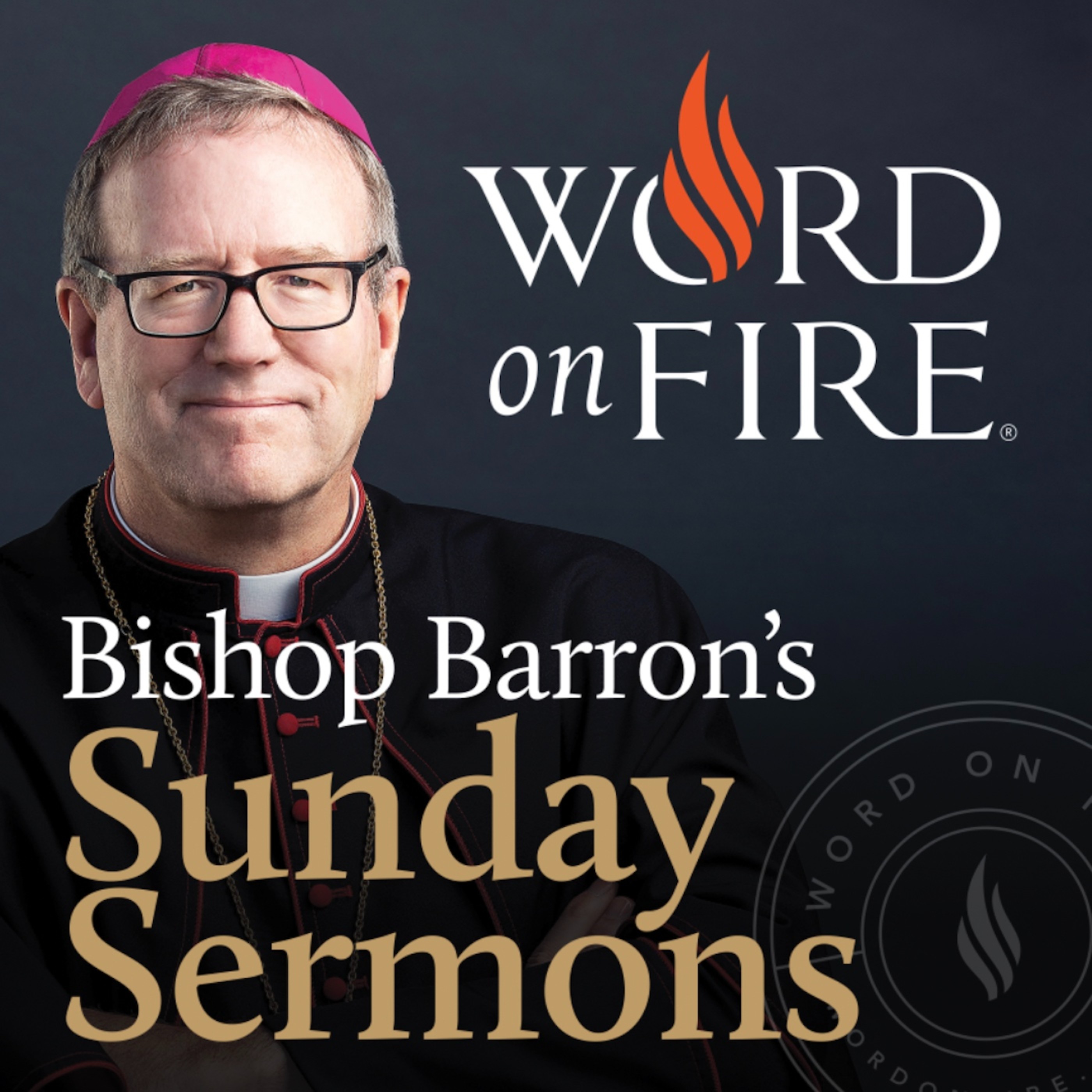

Bishop Barron’s Sunday Sermons - Catholic Preaching and Homilies
Bishop Robert Barron
A weekly homily podcast from Bishop Robert Barron, produced by Word on Fire Catholic Ministries.
Episodes
Mentioned books

Apr 24, 2005 • 15min
A Royal Priesthood
St. Peter tells us in our second reading that all of us--all the baptized--constitute a royal priesthood. This means that we perform sacrifices, acts which reconcile divinity and humanity. The entire life of a disciple should be a sustained act of bringing people to God and God to people. We are bridge-builders, reconcilers, royal priests.

Apr 17, 2005 • 15min
Redemptive Suffering
We hear this week from the Apostle Peter, speaking to the Christian community about redemptive suffering. This is the suffering that comes from doing what is right, even in the face of opposition. What it accomplishes is redemption, that is to say, "buying back" for God the one who perpetrates the injustice. No one in our own American tradition understood this principle--and put it into practice--more thoroughly than Martin Luther King.

Apr 10, 2005 • 15min
On the Road
The story of the two disciples on the road to Emmaus is one of the best-loved in the Biblical tradition. It speaks to us of the manner in which we come to see the risen Jesus. When we look through the lenses of the Biblical revelation and the Eucharistic mystery, Jesus comes into clear focus. This, of course, is the structure of the Mass, with its liturgy of the Word and liturgy of the Eucharist. The late great John Paul II understood this dynamic in his bones--which is why he travelled so widely to speak the word and make present the Eucharist.

Apr 3, 2005 • 15min
Falling in Love With God
So many of us skeptical moderns--intellectual heirs of Descartes-- identify with doubting Thomas. We too struggle with faith, ask tough questions, want proof. And to some degree, this is praiseworthy. But the trouble with systematic and persistent doubt is that it precludes the possibility of love, for love is always a surrender. "How blessed are those who have not seen and have yet believed," because they have allowed themselves to fall in love with Jesus Christ.

Mar 13, 2005 • 15min
Lazarus, Come Out
Our God hates death. Through the prophet Ezekiel, he said, "I will open your graves and have you rise from them." Jesus came to end the reign of death, to wrestle death to the ground. In the raising of Lazarus--which anticipates his own even more glorious resurrection--he fulfills the prophecy of Ezekiel, calling the dead man from his grave.

Mar 6, 2005 • 15min
The Man Born Blind
Blindness is a great Biblical symbol of spiritual blindness, the darkening and distortion of our vision. Jesus salves and washes the blind man in John's Gospel in order to restore his sight. In the same way, he washes us (in Baptism) and salves us (in the other sacraments) so that we might see with his eyes.

Feb 27, 2005 • 15min
The Infinite Thirst
We are made for God, and therefore our hearts are restless until they rest in him. This longing is symbolized in the thirst of the woman at the well. Directing her away from all earthly goods, Jesus draws her to himself: "I will give you water springing up to eternal life." We hear the same invitation to the font of grace.

Feb 20, 2005 • 15min
The Mystery of Light
On his way to Jerusalem, where he will be crucified, Jesus is transfigured before three of his disciples. This manifestation of glory, says Thomas Aquinas, was designed to encourage the disciples during the difficult days that would follow. It gives hope to us too. On the sometimes painful journey through this life, we see in the Transfiguration of the Lord a sign of what awaits us: a glorified life with God.

Feb 13, 2005 • 15min
Getting Back to Basics In the Spiritual Life
On this first Sunday of Lent, the Church asks us to get back to the spiritual basics. We are compelled to consider once again the story of the Fall. God wants us to be fully alive, but fullness of life comes ultimately only as a gift of grace and not an accomplishment of the will. When Adam and Eve grasped at godliness, they violated the law of the gift: your being increases in the measure that you give it away. This sin is reversed in the Gospel story of the temptation. Jesus consistently resists the devil's suggestions and makes the Father's will the center of his concerns. In Jesus' resistance, the momentum of Eden is reversed.

Feb 6, 2005 • 15min
Light of the World, Salt of the Earth
The purpose of the Church is essentially extraverted. It exists for the sake of sanctifying the world. Thus Jesus tells his followers to be light for the world--that which illumines and clarifies the deepest truth of things--and salt for the earth--that which preserves, spices up and frees what is best in creation. We are most fully ourselves when we are a beacon for everyone else.


